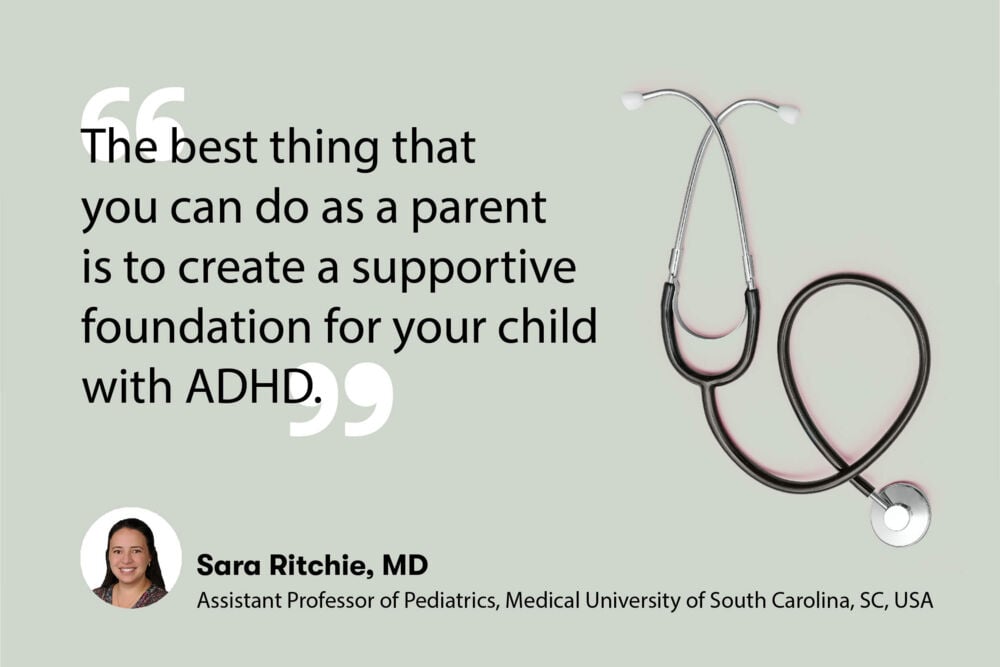Dr. Sara Ritchie, a pediatrics expert, gives a few suggestions for parenting strategies to help kids with ADHD succeed in life.
-
Tracking cycle
-
Getting pregnant
-
Pregnancy
-
Help Center
-
Flo for Partners
-
Anonymous Mode
-
Flo app reviews
-
Flo Premium New
-
Secret Chats New
-
Symptom Checker New
-
Your cycle
-
Health 360°
-
Getting pregnant
-
Pregnancy
-
Being a mom
-
LGBTQ+
-
Quizzes
-
Ovulation calculator
-
hCG calculator
-
Pregnancy test calculator
-
Menstrual cycle calculator
-
Period calculator
-
Implantation calculator
-
Pregnancy weeks to months calculator
-
Pregnancy due date calculator
-
IVF and FET due date calculator
-
Due date calculator by ultrasound
-
Medical Affairs
-
Science & Research
-
Pass It On Project New
-
Privacy Portal
-
Press Center
-
Flo Accuracy
-
Careers
-
Contact Us
Parenting a Child with ADHD: What Can I Do to Help?


Every piece of content at Flo Health adheres to the highest editorial standards for language, style, and medical accuracy. To learn what we do to deliver the best health and lifestyle insights to you, check out our content review principles.
Tips for parents to help their children with ADHD
“What I tell my patients — and a lot of experts in pediatric medicine will support this kind of information — is the best thing that you can do as a parent is to create a supportive foundation for your child,” says Dr. Ritchie.
Here are Dr. Ritchie’s tips for doing this:
- Come up with a routine. You need to have a daily routine that everybody is on board with so that everybody knows how the day works. You wake up and you go to sleep at a regular hour, and you have planned activities that you know are going to be the same, so they’re going to school and being picked up at the same time every day.
- Make sure their school is supportive. Their school needs to create a structure for the child so that things are going to be very regular, very calm, and very organized. That can help support a child with ADHD.
- Keep your home organized — everything should have its place. At the end of each day, you clean up and reset the environment. You want it to be a calm, inviting environment because a chaotic environment can exacerbate ADHD symptoms.
- Keep a family calendar so you all know when an event is going to happen and the child can mentally prepare for it.

School environment
Dr. Ritchie says that as a parent you can make sure the school comes up with a plan for your child.
“Creating an organized environment so that things are very structured so that they know where they’re going to sit every day and aren’t so distracted also supports the child,” Dr. Ritchie says.
“They know where their next classes are, and they have a route to get there, and they know it is going to be the same every day. And if there’s going to be a variation from the plan, they know it ahead of time so that they can prepare for that.”
The effects of ADHD on life
Dr. Ritchie says ADHD can be pretty significant in adolescence, and it’s really important for parents to know what a child with ADHD is at increased risk of compared to a child without ADHD.
- They have a greater risk of injuries. For example, they are at a higher risk of a motor vehicle crash. So when they’re learning to drive, keep that in mind and take some extra precautions.
- They have a higher risk for impairment in academic functioning. They might have lower achievement scores in general or fail more classes than their peers.
- They’re more likely to engage in substance abuse or drug abuse.
“That is something to look out for too. I mean, just having open conversations with your adolescent or your teenager to sort of head that off sometimes helps,” Dr. Ritchie says.
Take a quiz
Find out what you can do with our Health Assistant
Disorders related to ADHD
“ADHD often goes hand-in-hand with other disorders, for example, anxiety or oppositional defiant disorder, conduct disorder, and even depression,” says Dr. Ritchie.
“I have so many patients who have multiple disorders, and it is really important to make sure to treat whatever else may be present, not just the ADHD.”
Dr. Ritchie believes that the children who have the most success have parents who are on board with recognizing and being open to the fact that their child might have other conditions as well and take that into account.
ADHD often goes hand-in-hand with other disorders, for example, anxiety or oppositional defiant disorder, conduct disorder, and even depression.
“I have so many patients who have both ADHD and anxiety. We treat their ADHD with a stimulant, but we also think about an SSRI or a medication for the anxiety. If we treat both of them together, then we have so much more success. I also have many patients who have ADHD and oppositional defiant disorder, and when we treat both of those — oppositional defiant disorders generally with cognitive behavioral therapy — we have the greatest success,” Dr. Ritchie says.


Hey, I'm Anique
I started using Flo app to track my period and ovulation because we wanted to have a baby.


The Flo app helped me learn about my body and spot ovulation signs during our conception journey.


I vividly
remember the day
that we switched
Flo into
Pregnancy Mode — it was
such a special
moment.
Real stories, real results
Learn how the Flo app became an amazing cheerleader for us on our conception journey.




